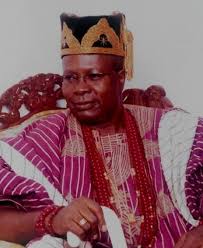Daud Olatunji
In a remarkable achievement spanning over 14 years on the throne, the Gbegande of Ososa, Oba Adetoye Alatise, has tackled maternal and infant mortality rates.
The monarch is significantly improving healthcare outcomes in Ososa Ijebu, a town nestled within in the Odogbolu local government area.
PLATFORM TIMES gathered that central to this success has been the strategic empowerment and training of traditional birth attendants, a move spearheaded by Gbegande Ososa, a prominent figure in the healthcare sector.
Ogun State is one of the states with alarming rates of both maternal and infant mortality in the country.
PLATFORM TIMES further gathered that birth attendants were part of the causes of the death in the state.
Findings by PLATFORM TIMES show that many pregnant women and mothers usually boycott the Primary Health Centers for birth attendant centers due to many reasons.
One of the reasons, according to some pregnant women in the state who spoke with PLATFORM TIMES, was the condition of the PHCs, which they describe as deteriorating.

But, the visit to Ososa Village revealed that the place had been hit by the menace of quackery and birth attendants prior to the assumption of the throne of the 68-year-old medical doctor-turned traditional ruler. And within the last 14 years, the situation has been brought under control.
Speaking on the method adopted to control and eradicate the alarming rate of death as a result of quackery, Oba Alatise, a medical doctor who was installed as Gbegande of Ososa in 2010, emphasized the pivotal role played by traditional birth attendants.
He highlighted their prevalence and significance, particularly in rural areas where access to formal healthcare facilities may be limited.
He stressed the importance of equipping these attendants with essential skills in hygienic consultation and health management to ensure safe childbirth practices.
Addressing concerns about the legitimacy of traditional birth attendants, Gbegande underlined the cultural context, emphasizing that certain practices, such as breastfeeding, are deeply ingrained in local traditions.
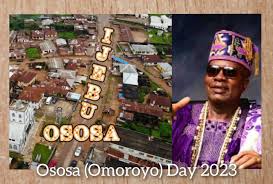
He acknowledged the need to blend cultural practices with modern healthcare approaches, advocating the integration of preventive measures such as vaccinations against tetanus and the use of sterilised equipment during childbirth.
The monarch revealed innovative measures taken to enhance healthcare services, including his personal initiative to learn ultrasound techniques, thereby reducing the need for pregnant women to travel long distances for scans.
This proactive approach not only improved accessibility to essential medical services but also mitigated risks associated with transportation, as highlighted by a poignant incident of a pregnant woman’s fall during the rainy season.
… Local Birth Attendants Vital In Rural Health Care: Ososa Case Study
In the heart of rural Nigeria, birth attendants play a crucial role in ensuring maternal and infant health. In a candid dialogue,the community leader emphasized the pivotal role of these attendants, stating, ““if you are not training them, you are not doing seminars for them, you are not helping yourself. So, I have always encouraged them unless we are deceiving ourselves.
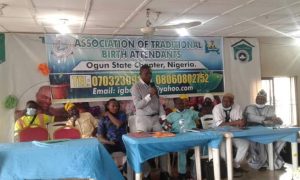
“They take more births than even government hospitals and private hospitals. And in a rural setting like this, you just have to be training them, let them know why it is compulsory for them to have the skills of hygienic consultation and hygienic health management for their various places.”
Oba Alatishe underscored the significance of empowering birth attendants with essential skills in hygienic consultation and health management.
He stressed that these attendants often oversee more births than government or private hospitals, particularly in rural areas like Ososa.
Addressing concerns about the legitimacy of birth attendants operating in Ososa and surrounding villages, the monarch pointed out the cultural context.
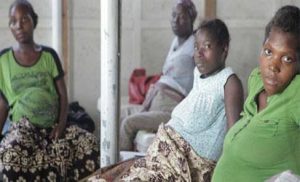
“We are not White people,” he stated. “Breastfeeding, for example, was not brought here by the white people. It is part of our culture.”
He emphasized the importance of respecting and integrating cultural practices while also promoting modern healthcare standards.
He highlighted efforts to enhance healthcare access in Ososa. He shared his initiative to learn ultrasound technology to reduce the need for villagers to travel long distances for scans.
He recounted a distressing incident where a pregnant woman fell from a motorcycle during the rainy season, emphasizing the need for accessible healthcare services in rural areas.
According to him, the vital role of birth attendants in rural healthcare called for continuous support and training to ensure safe deliveries and maternal well-being in communities like Ososa.
… 14 Years After, Gbegande Transforms Health Facilities in Ososa
A remarkable transformation has taken place over the past 14 years under the leadership of the Gbegande of Ososa. Among the myriad of achievements under his reign, one area stands out prominently: healthcare.
Oba Alatise, reflecting on the state of healthcare upon his ascension to the throne, recalls the dismal state of the Primary Health Centre. “People were not attending their Primary Health Centre,” he laments.
Determined to rectify this, he took matters into his own hands, embarking on a journey to overhaul the healthcare landscape of Ososa.
Central to this transformation was the construction of a doctor’s quarters, a testament to his unwavering commitment to the well-being of his people. “I single-handedly built a doctors’ quarters,” he reveals.
This bold move laid the foundation for attracting medical professionals to the area, ensuring that quality healthcare was accessible to all residents.
To complement this initiative, Oba Alatise said he forged a partnership with the National Youth Service Corps (NYSC), leveraging their resources to address the healthcare needs of Ososa. “I started the deal with the NYSC,” he explains.
Through this collaboration, NYSC doctors were posted to the area, bolstering the healthcare workforce and providing essential medical services to the community.
However, the journey towards revitalizing healthcare in Ososa did not end there.
Oba Alatise recounts a pivotal moment when he witnessed nurses sharing wards with patients, a situation he deemed unacceptable.
Determined to rectify this, he took decisive action, constructing two dedicated rooms for nurses. “One for the student nurses… and one for the real nurses who are on duty,” he stated.
This gesture not only improved working conditions but also ensured that healthcare professionals could deliver their services effectively.
Beyond infrastructure development, the Gbegande of Ososa recognizes the importance of cultivating connections and partnerships.
“By the advent of our connections, we have sons and daughters who are in some clubs,” he shares.
These connections have undoubtedly played a crucial role in furthering the healthcare agenda in Ososa, facilitating the acquisition of resources and expertise to support ongoing initiatives.
Today, Ososa boasts of a revitalised healthcare system, a testament to the transformative leadership of Oba Adetoye Alatise.
… Ososa: Ogun Community Under a Tradition-Breaking Surgeon Ruler
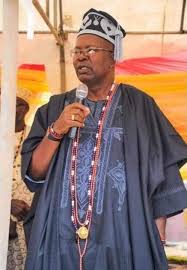
At 68 years ,Oba Adetoye Alatishe, also known as the Gbegande of Ososa Ijebu, stands as a beacon of tradition and modernity, blending the ancient role of a ruler with the contemporary practice of medicine.
Despite his esteemed position as a traditional ruler, Oba Alatishe remains committed to his calling as a medical doctor, actively performing surgeries on his patients. Oba Alatishe’s journey is marked by a diverse array of accomplishments.
With a background in medicine, he served as a council chairman for the entire Ijebu-Ode local government from 2004 to 2007.
His dedication to public service continued as he assumed leadership roles in various capacities, including chairman of the constituency of Obas and chairman of the Primary Health Care Development Board.
What sets Oba Alatishe apart is his unwavering commitment to his medical profession, even amidst the demands of his royal duties.
While many might expect a traditional ruler to solely focus on ceremonial duties, Oba Alatishe defies convention by actively practicing medicine, demonstrating his dedication to improving the health and well-being of his community.
His ability to seamlessly integrate traditional leadership with modern medical expertise speaks volumes about his character and dedication to service.
Oba Alatishe’s continued presence as a practicing surgeon symbolizes resilience, adaptability, and a deep-rooted commitment to both tradition and progress.
In an era where traditional rulers often symbolize the past, Oba Adetoye Alatishe stands as a living testament to the evolving role of traditional leadership in contemporary society, proving that age is no barrier to innovation and service to humanity.
The current Gbegande of Ososa Ijebu is known and respected within the Yoruba land for his exposure and experienced medical doctor who still performs surgery on patients even as an Oba.
Born Adetoye Mojeed Alatishe on October 1, 1956, to the royal family of Balogun Alatishe of Ogunpyega ruling house, Ososa.
He started his education at Christ Church School, Porogun Alapo, Ijebu-Ode between 1962 and 1967 for his primary education.
He proceeded to Ijebu Muslim College, Ijebu-Ode where he had his Secondary School Leaving Certificate between 1968-1972.
Oba Adetoye Alatishe then proceeded to Adeola Odutola College, Ijebu-Ode between 1973-1975 where he had his A-level certificate.
The Oba is known for his role in Ijebu Muslim College where he had acted in many playlets as “Oba” including the famous play, Efunsetan Aniwura.
He was subsequently given Federal Government Scholarship to study Medicine in First Moscow Medical Institute, Moscow USSR and graduated as a qualified Medical Practitioner.
While he was in Moscow, Oba Adetoye Alatishe was the President of the Nigeria Students Union, Moscow where he worked assiduously to ensure that the Nigeria Students are treated fairly by the management of the First Moscow Medical Institute.
With his giant strides as the President of Nigeria Medical Students, Moscow, he was elected as the President of the African Medical Students, Moscow in 1981.
The Oba graduated from First Moscow Medical Institute in 1982 and worked as the Medical Officer of Dr. Adeoye Hospital, Omitowoju, and Fele Hospital, Ibadan in 1983-1984. He had also worked as the Medical Officer, State Hospital in Ijebu-Ode between 1984-1986. In his bid to provide affordable medical care for his people, he established his own private hospital, Alatishe Clinic, Ijebu Ode in 1986.
The Oba had held several positions in the medical profession including, Member Hospital Management Board, Ogun State from 1999-2000.
…Ososa: Preserving the Legacy of Nigeria’s Theatre Icon, Ogunde
While Ososa boasts of many unique attributes, one particularly captivating facet is its status as the hometown of Nigeria’s legendary theatre pioneer, Ogunde, often hailed as the Doyen of Nigeria’s Theatre Art.
For decades, Ososa has proudly embraced its association with Ogunde, celebrating his profound influence on Nigeria’s cultural landscape.
As the birthplace of this revered figure, Ososa has become synonymous with the rich heritage of Nigerian theatre.
In Ososa, the spirit of Ogunde lives on through various cultural initiatives, festivals, and tributes that pay homage to his enduring legacy.
The community takes pride in preserving and promoting Ogunde’s contributions to the arts, ensuring that future generations continue to appreciate his impact on Nigerian theatre.
Beyond its historical significance, Ososa embodies a sense of unity and pride, fueled by its association with Ogunde.
Visitors to the community are welcomed with open arms, invited to explore its cultural landmarks and experience the vibrant energy that permeates the town. Ososa’s designation as the “town of Ogunde” serves as a testament to its enduring connection to Nigeria’s theatrical heritage.
Through its commitment to preserving this legacy, Ososa stands as a shining example of cultural preservation and community pride.
…. How Ososa Residents Appease the Unforgiving ‘Ososa River’ Every Year
In the heart of Ososa Ijebu, nestled between the winding paths of tradition and the modern world, lies the mystical Okanmayo River, known to locals as the ‘Ososa River.’ For generations, this river has been both a source of reverence and fear, with its waters holding tales of both blessing and tragedy.
The custodian of this ancient tradition, the Gbegande of Ososa Ijebu, speaks with a mixture of respect and concern for the rituals that have sustained his people for centuries.
He said, “They go to the shrine there to do libation and appeal to our gods, and I believe in that practice,” he shares, emphasizing the importance of maintaining the sacred connection with their spiritual heritage.
But amidst the annual rituals of appeasement lies a darker reality – the perilous condition of the surrounding infrastructure.
Oba Alatishe expresses his worries, “There is no safety at all, and it’s peculiarly on a lower level. So when people are coming, especially all these articulated vehicles, the goods they are carrying sometimes overwhelm their brakes.”
The aging bridges, a lifeline for the community, stand as a testament to neglect. “The Federal government had to do more infrastructure in that area,” Oba Adetoye urges, lamenting the repeated promises of repair that never fully materialize. “Those bridges are so old. I grew up knowing them as they are.”
The plea extends beyond mere convenience; it’s a cry for survival. Overgrown medians and encroaching foliage create hazardous conditions for travelers, with Oba Adetoye noting, “The vehicles coming from this side cannot see the ones going on the other side. It is very wrong.”
In the face of these challenges, the community looks toward the government for assistance. “Nigeria is the only country where trees are growing in the middle of highways,” Oba Adetoye remarks, echoing the frustration of a people caught between tradition and progress.
As the sun sets over the Ososa River, casting its golden glow upon the waters that have witnessed both joy and sorrow, one thing remains clear – the resilience of a community determined to honor its past while forging a path towards a safer, brighter future.
With each passing year, the rituals of appeasement continue, a testament to the unwavering spirit of Ososa Ijebu and its enduring bond with the mystical ‘Ososa River.’
… Revitalizing Ososa: A Tale of Infrastructure Development
When it comes to infrastructure, Oba Alatise proclaims, “there’s nothing we have not done.” From tackling potholes to ensuring access to clean water, the dedication to enhancing the town’s amenities is evident.
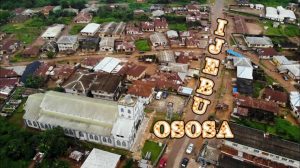
Under his leadership, the community has banded together to overlay countless potholes, install boreholes in every quarter of Ososa, and revive the general water supply system.
PLATFORM TIMES gathered that through initiatives like the Water Task Force, individuals are empowered to contribute to the upkeep of essential services, ensuring that even the remotest corners of Ososa have access to clean water.
But the transformation doesn’t stop there. The iconic palace, a symbol of Ososa’s heritage, stands as a testament to Oba Adetoye Alatise’s commitment to preserving tradition while embracing progress.
In a remarkable feat, the palace was erected during his reign, marking a departure from the era when successive Obas resided in private homes.
According to him, this monumental achievement was made possible through the collective efforts of Ososa’s sons and daughters, who contributed to its construction.
While sharing the glad tidings,Oba Alatishe said Education is another cornerstone of development in Ososa.
With three government primary schools and Ososa Comprehensive School catering to the educational needs of the community, Oba Alatise said he ensures that every child has access to quality education.
The monarch said the presence of private secondary schools and a campus of Tai Solarin University of Education underscores Ososa’s commitment to nurturing the next generation of leaders.
Do you want to share a story with us? Do you want to advertise with us? Do you need publicity for a product, service, or event? Contact us on WhatsApp +2348183319097 Email: platformtimes@gmail.com
We are committed to impactful investigative journalism for human interest and social justice. Your donation will help us tell more stories. Kindly donate any amount HERE

